TouroCOM-Middletown Engages in Medicine and Horsemanship Program
In unique program, TouroCOM-Middletown students interact with horses to hone their skills in nonverbal communication.
First and second-year osteopathic medical students at Touro College of Osteopathic Medicine (TouroCOM)-Middletown had a group of unusual patients last week: horses. In conjunction with Raven Hill Farms and Equi-Power Solutions (an equine experiential learning program for professional development), the students participated in a Medicine and Horsemanship program that taught them how to improve their nonverbal communication, using the animals as their guides.
The D.O. candidates receiving trained by equine specialists and a social worker on horse dynamics, after which they divided into five teams—one horse in each team—and used their observation skills to work with the horses on a variety of activities (including navigating an obstacle course). While doing their best to interpret their “patient’s” behavior, the students learned about bedside manner, patient compliance, emotional intelligence, and body language. In this photo essay, read several second-year students' accounts of the unique experience.
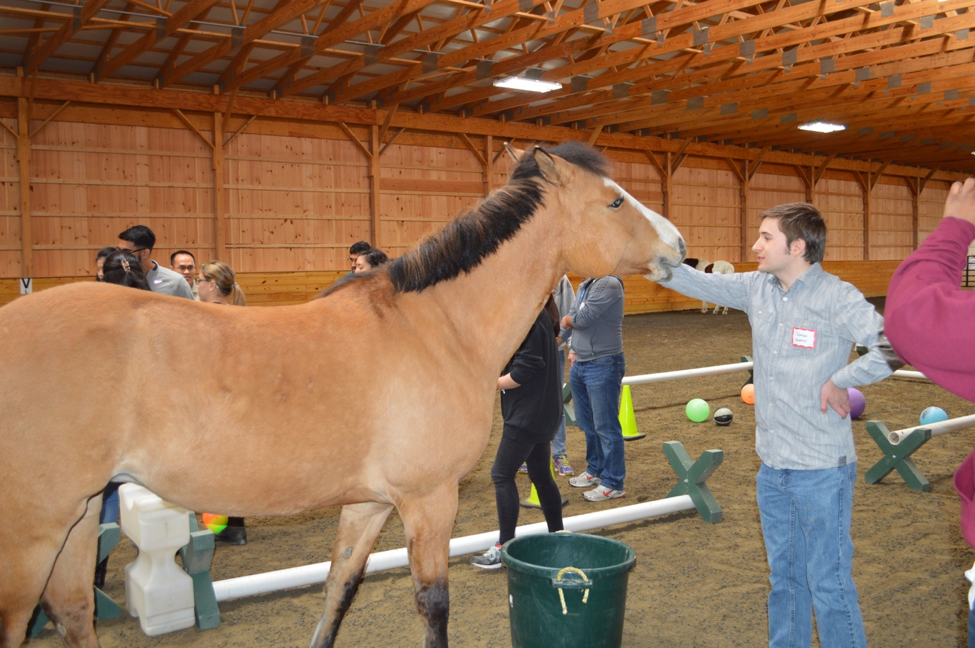
Andrea Attenasio:
“Different horses had different personalities. Some were more easygoing and laidback, while others were stubborn, so we had to tailor our approach to each horse. Something that worked to get one horse through the obstacle course would cause the other one to turn away and stop right where he was. The horses also responded differently to our group dynamic. The more frustrated we got, the less responsive the horses would be. You could tell what they were feeling by their body language, the position of their head, and their willingness to move. The most blatant cue for when they had had enough was when they turned their backs to us and walked away to stand in the corner.”
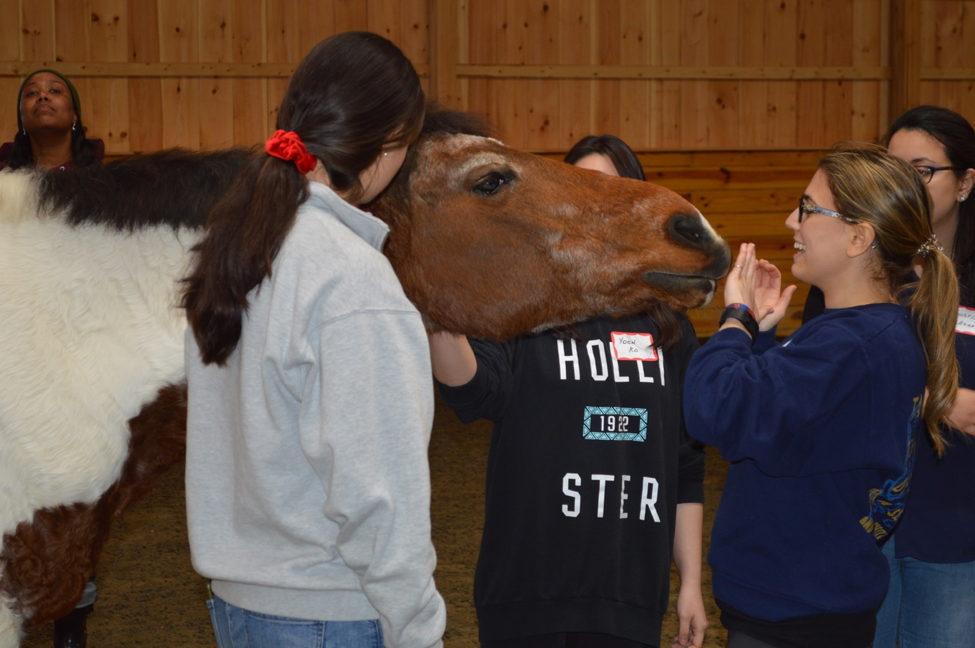
Alexus Taddonio:
“Even though I’ve grown up riding horses my whole life, and actually own horses myself, I’ve never worked with horses like this among colleagues. Not only was this a bonding experience for us as classmates, it also helped us hone our interpersonal relation skills and our verbal/nonverbal communication skills, both with the horses and those around us. Working with horses is intimidating, so it pushed us out of our comfort zones, and also made us think outside the box when trying to solve our tasks with the horses.”
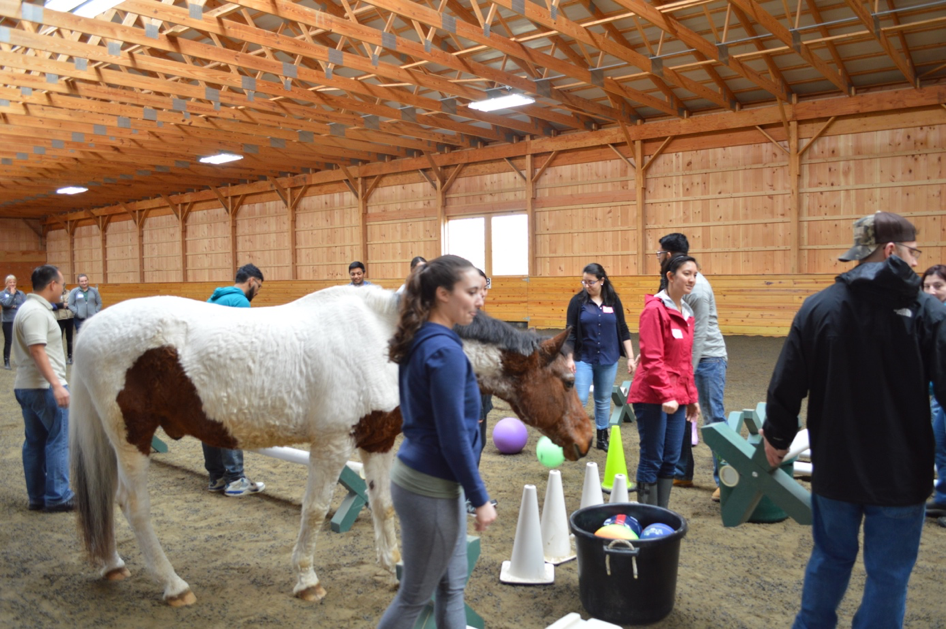
Bianca Zapanta:
“This was my first time interacting with horses, and I thought the integration with our communication skills was truly amazing. In the two short hours we spent with the horses, we learned so much about ourselves and the way we interact with each other.”
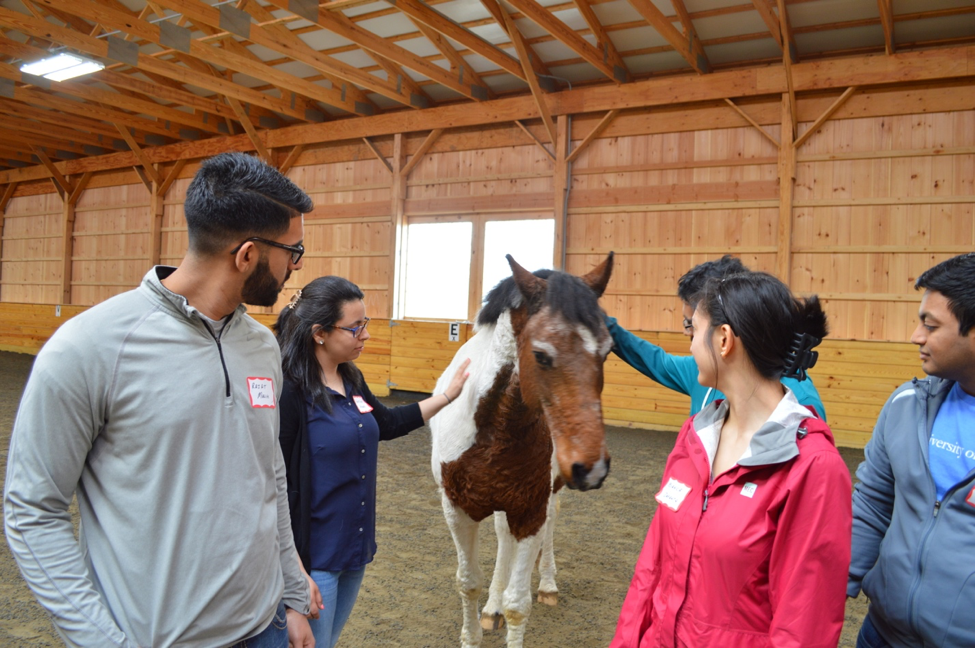
Rajat Malik:
“Not only did it allow us to gain insight on bedside manner, it also provided sort of a "therapy/counseling" session. It was interesting to see how we can relate our patients to horses and learn from horses in order to better understand our patients in a gentle way.”
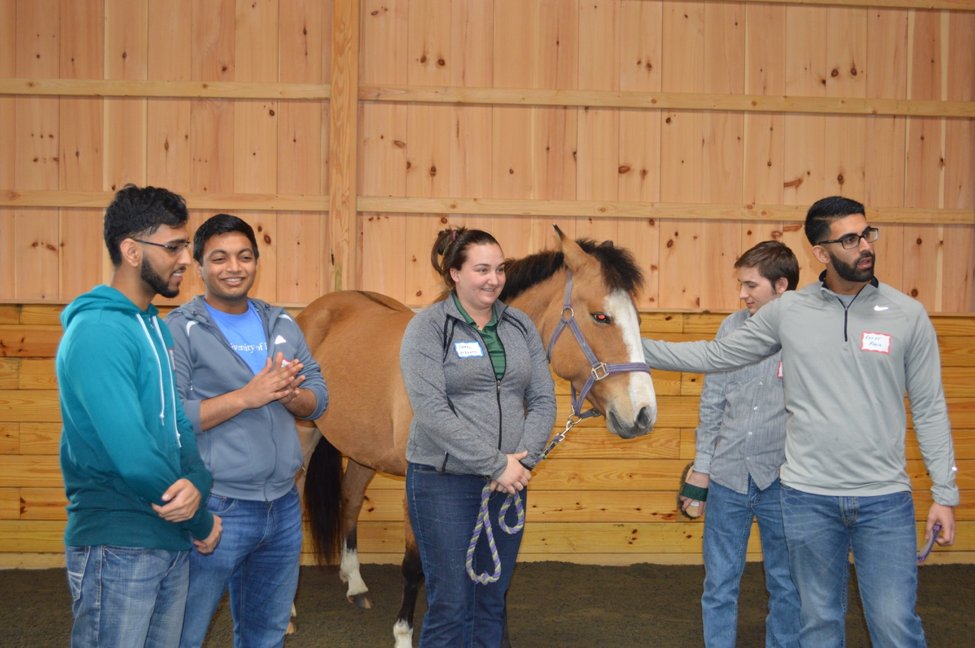
Jacky Leong:
“This program was a great teaching tool for teamwork, self-reflection and at the same time, as an outlet for stress-relief therapy.”
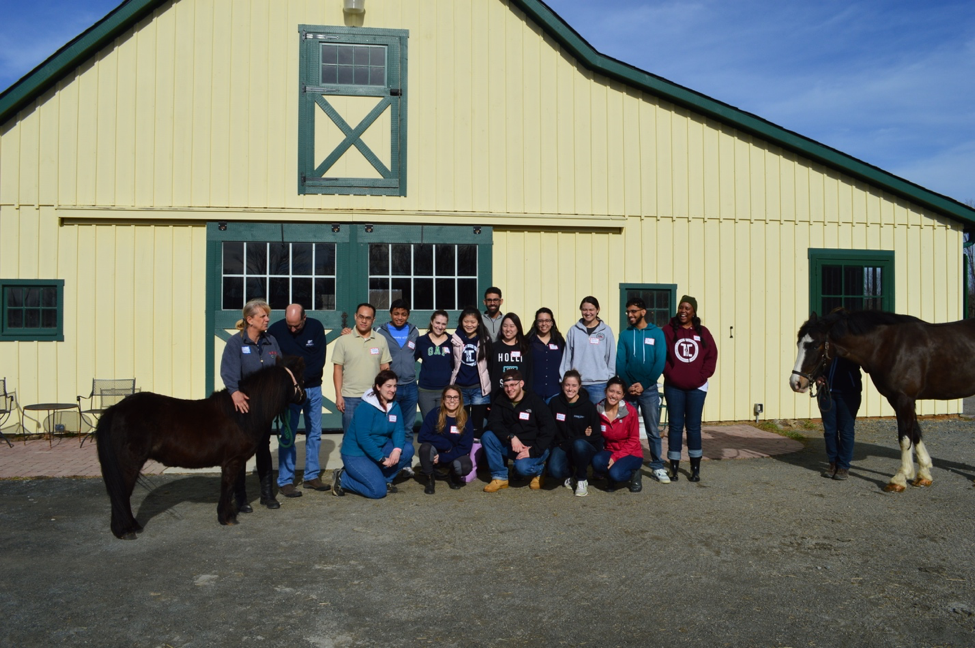
Dean Kenneth Steier:
“As the Dean of TouroCOM-Middletown, and as a lung specialist, I visited the Horse Farm and went through part of the program myself. I was very impressed with how the farm integrated medical concepts regarding approaching patients into these sessions with horses. The horses are prey animals, and are very sensitive and skittish. As the medical students learn to approach them in a calm, nurturing way, it will help them approach their human patients in a similar way.”
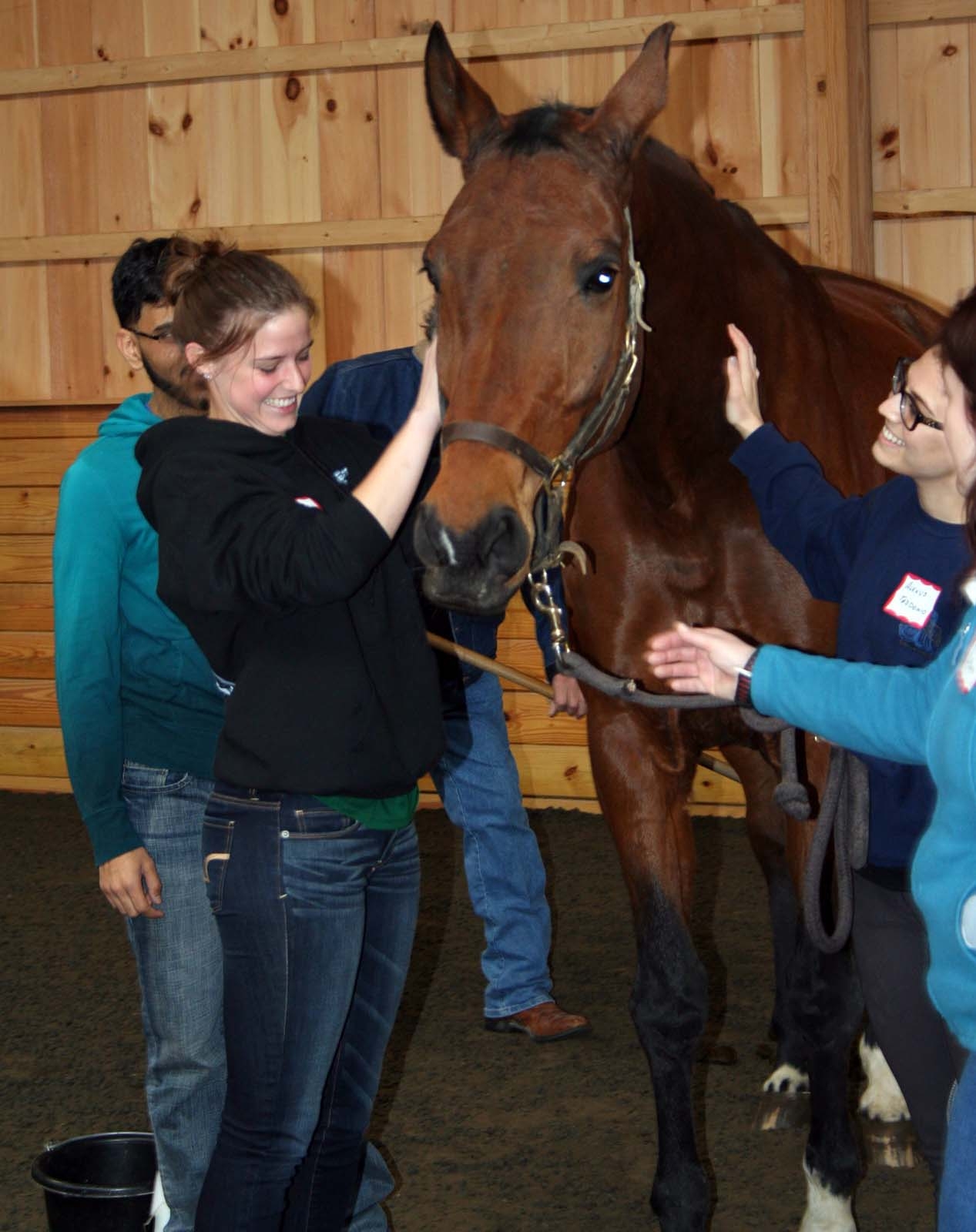
Dr. Alex Joanow:
“The Medicine and Horsemanship program provided an experience to develop communicative skills that hopefully, the students will use throughout their careers. It certainly melds with the holistic philosophy that is the foundation of osteopathic medicine.”

